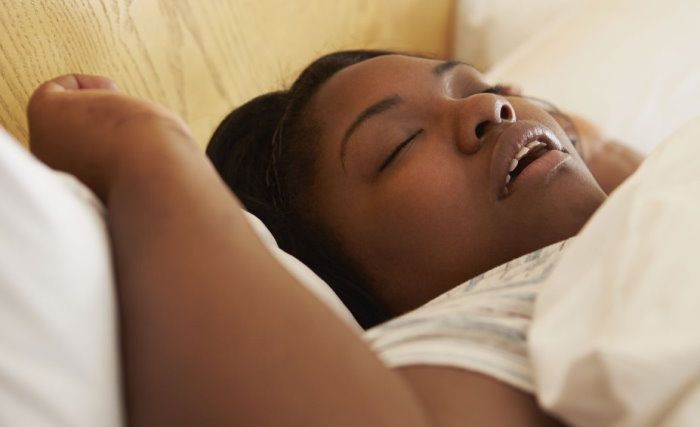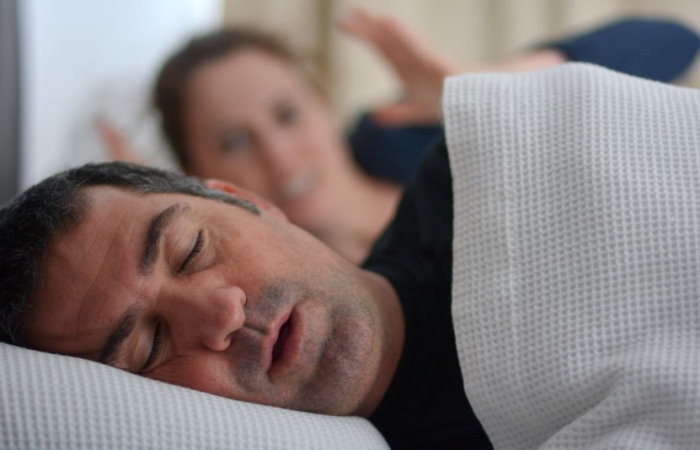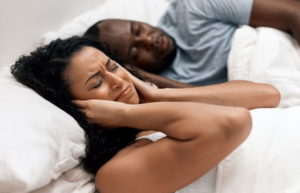Have you ever slept in the same room as a snorer? If you answered yes, chances are you had trouble sleeping. Whether the snoring is loud or moderate, the noise can certainly disrupt your sleep. It is annoying and a cause for concern, especially when it happens every night. But if someone’s snoring wakes you up, you might wonder how the snorer can sleep through the noise.
In this guide, you will learn about how snorers stay asleep and if the noise bothers them at all.
Snoring Wakes Me Up: What You Need to Know
You can hear your own snoring while you sleep. However, its impact on you – the snorer – and those that sleep close to you are different. Your brain functions during sleep help filter out low-priority sounds within your immediate environment. The snoring sound you produce is filtered out because your ears and your entire system are used to that sound. Your brain also prioritizes restfulness, so it won’t trigger your body to wake up, even with the presence of your snoring sound.
The snoring typically begins when you enter the deep sleep state. At this phase of your sleep, your muscles relax to a point when vibrations could happen, which causes snoring as you breathe during sleep. Certain brain activity also temporarily shuts down when you sleep so you are oblivious to your own snoring.
External sounds such as that loud bang in the kitchen or rattle on the roof shingles can wake you up. These are called high-priority signals. When you hear them during sleep, your brain activates wakefulness as part of your body’s defense mechanism. This activity in the brain explains why you can be awakened by subtle noises but not by your loud snoring.
Does Your Own Snoring Wake You Up from Sleep?
The answer is yes and no. Some snorers are awakened by their loud snoring sounds, others aren’t. For those who do wake up from their snoring, the disturbance only takes place for a few seconds. The snorer can go back to sleep again after that. The fact that snorers can go back to sleep is why many of them don’t even remember waking up. They are still in a sleep state when the sleep disturbance happens and do not have a recollection of it in the morning.
Another curious case among snorers is that if they do wake up in the middle of the night, the snoring sound is not the culprit behind it. Studies reveal that during the sleep state, the brain of the snorer becomes accustomed to the sound of their own snoring (a process known as habituation) that they are not awakened by it, no matter how loud the noise. This conclusion is supported by many sleep studies conducted on chronic snorers. Among these patients, they experienced no awakening from the snoring sound, except among those diagnosed with obstructive sleep apnea.
The University of Michigan Sleep Disorder Center examined this theory more closely in a sleep study involving 400 patients. The study aimed to provide essential data that would help sleep doctors determine if snoring does interrupt the sleep of the snorer. Several variables presented themselves at the end of the study such that no conclusive statement could be made. However, the researchers could not deny that the sound of loud snoring can contribute to sleep disturbances among snorers. More research is needed to examine the impact of the sound of snoring on the sleep quality of patients, not just those around them.
Wake-Up Call: When is Snoring a Concern?
Snoring is an annoyance for anyone who has to deal with it on a nightly basis. The loud noise can make sleep elusive, especially when you sleep next to someone who is a loud snorer. However, there are more important concerns about snoring aside from the lack of quality sleep.
Loud snoring, specifically, can indicate a serious health condition. It is important to get the snoring problem checked by a specialist as chronic snoring can be a symptom of sleep apnea. Chronic snoring happens when the air passage at the back of your mouth is blocked. Deep breathing while you sleep can cause that vibrating sound that is manifested through snoring.
Sleep apnea is one of the serious complications that could arise from snoring. This condition causes the snorer to stop breathing for 10-30 seconds. Some would even stop breathing for up to 2 minutes. The abnormalities in the breathing pattern alert the brain to wake up the snorer, which results in a disturbed sleep cycle.
Not only is sleep apnea a huge risk, but it can also impact overall health due to poor sleep quality. The snorer (and those around them) could wake up several times throughout the night. Without poor sleep quality, your immune system level drops, making you prone to various illnesses and could potentially lead to several cardiovascular issues.
When to See a Doctor About Snoring
Casual snoring is common and usually nothing to worry about. However, habitual snoring is something that you should not ignore. The general rule is that you should see a doctor once snoring affects your sleep quality and causes daytime sleepiness. It might seem trivial, but snoring can affect relationships, especially when it impacts your partner’s well-being.
Several signs also indicate that it is time to see a doctor about your snoring problems. Here are some of the tell-tale signs that you should not ignore.
- Extremely loud snoring
- Choking or gasping for air during sleep
- Irregular sleep pattern
- Chronic insomnia
- Waking up with a dry throat sensation
- Chronic tiredness
- Mood swings or being highly irritable
A sleep doctor or snoring specialist can assess the symptoms and the extent of the problem. A sleep assessment is performed to identify your symptoms and analyze your behavior during your sleep state. Based on the data gathered, your sleep doctor will suggest the treatment and the next steps required to prevent snoring from becoming a serious health issue.


























